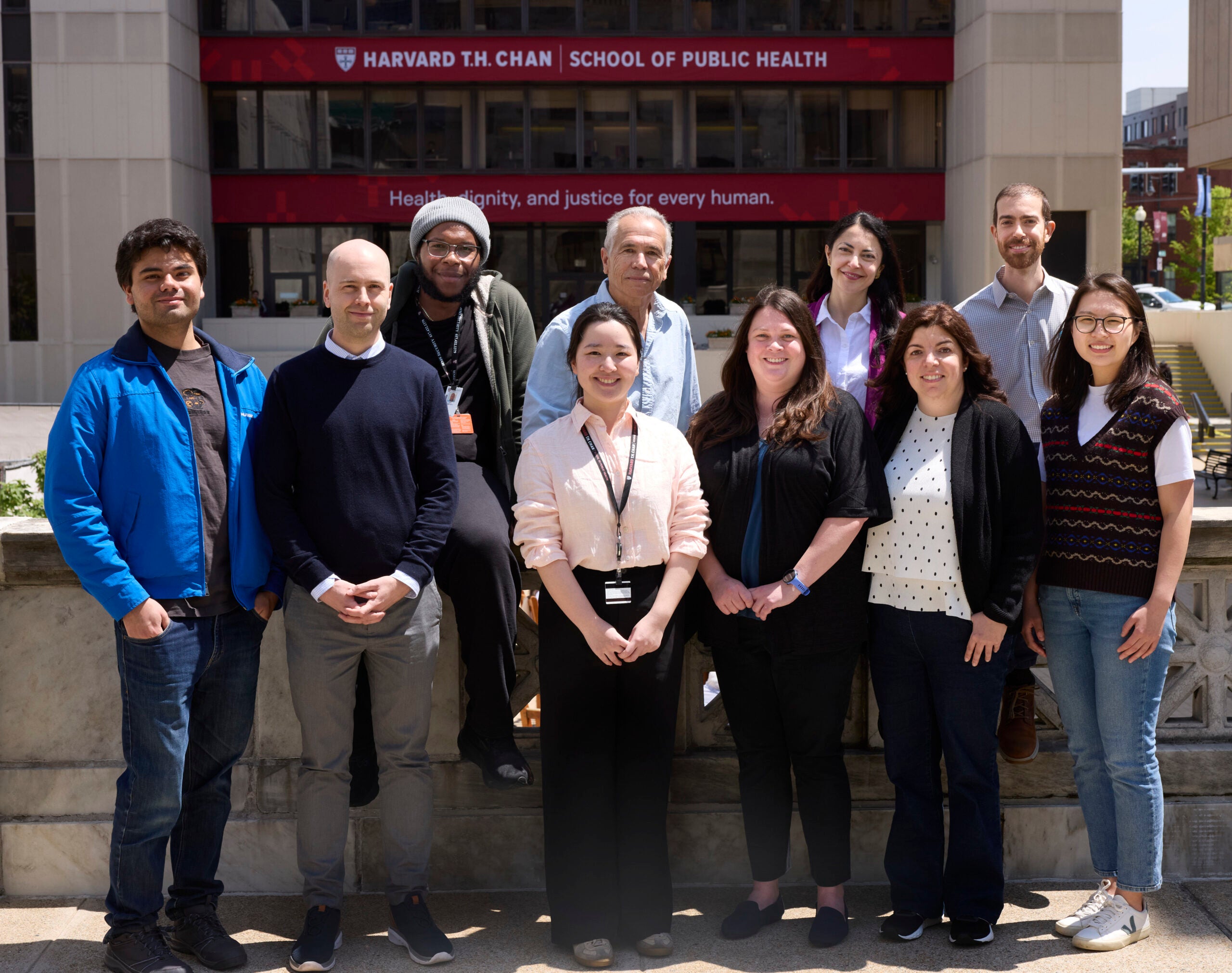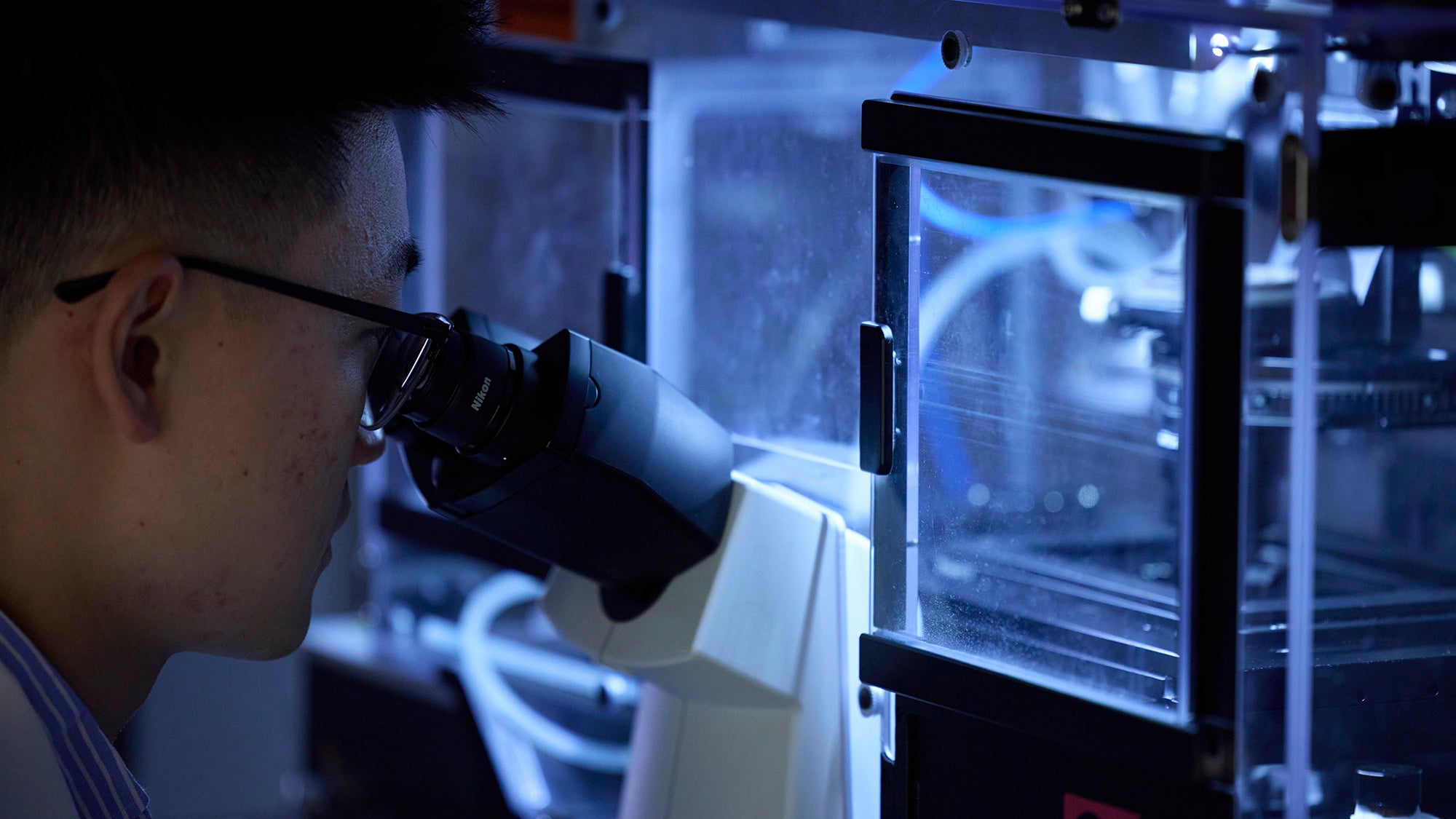Neuroepidemiology Research Group
The Neuroepidemiology Research Group is a collaborative team of scientists dedicated to investigating the causes of multiple sclerosis, Parkinson’s disease, amyotrophic lateral sclerosis, and other neurological diseases.
665 Huntington Avenue
Building 2
Boston, MA 02115

Overview
We seek to identify the causes of neurological diseases.
We are driven by the mission to prevent and cure some of the most severe brain diseases that can affect human beings throughout their lives. We strive to identify the causes as well as early markers of multiple sclerosis, Parkinson’s disease, amyotrophic lateral sclerosis, and other neurological conditions. Our research additionally focuses on identifying effective approaches to preserve brain health and cognitive function during aging.
The Neuroepidemiology Research Group conducts projects that involve multiple national and international cohorts. Collectively, these studies constitute a unique resource comprising millions of individuals that we hope will contribute to the discovery of novel prevention and treatment strategies for neurological diseases.
For potential students or researchers, our group offers a supportive environment and collaborative opportunities with field experts. Our diverse research portfolio allows broad exposure to neuroepidemiology, with the potential to contribute to advancements in neurological disease prevention and treatment.
Support Harvard Chan School
Every gift contributes to our mission of building a world where everyone can thrive. To learn more about how you can support the Neuroepidemiology Research Group, please contact Laura Barnes at lbarnes@hsph.harvard.edu.
Featured News
Research Themes
- Modifiable risk factors for the risk and progression of multiple sclerosis, Parkinson’s disease, and amyotrophic lateral sclerosis.
- The role of infections in the development of neurological disorders.
- Biomarkers and early signs of prodromal Parkinson’s disease and other neurodegenerative diseases.
What We Do
We investigate the causes of neurological diseases by examining nutrition, environment, and infectious agents, while also identifying relevant biomarkers and genetic determinants.
Current projects include:
- Investigating the etiological role of the Epstein-Barr virus in multiple sclerosis. This investigation include studies seeking to better understand the mechanisms through which the virus causes the disease, and exploring whether targeting the virus in patients with multiple sclerosis can slow disease progression and improve symptoms. Additionally, it includes studies on other environmental risk factors for multiple sclerosis, including dietary factors such as vitamin D and polyunsaturated fatty acids.
- Investigating the role of lifestyle, diet, and biomarkers in determining Parkinson’s disease risk. These projects include the assessment of non-motor signs of prodromal disease.
- Conducting large longitudinal studies to understand the role of environmental factors, including infections and diet, in the development and progression of amyotrophic lateral sclerosis.







